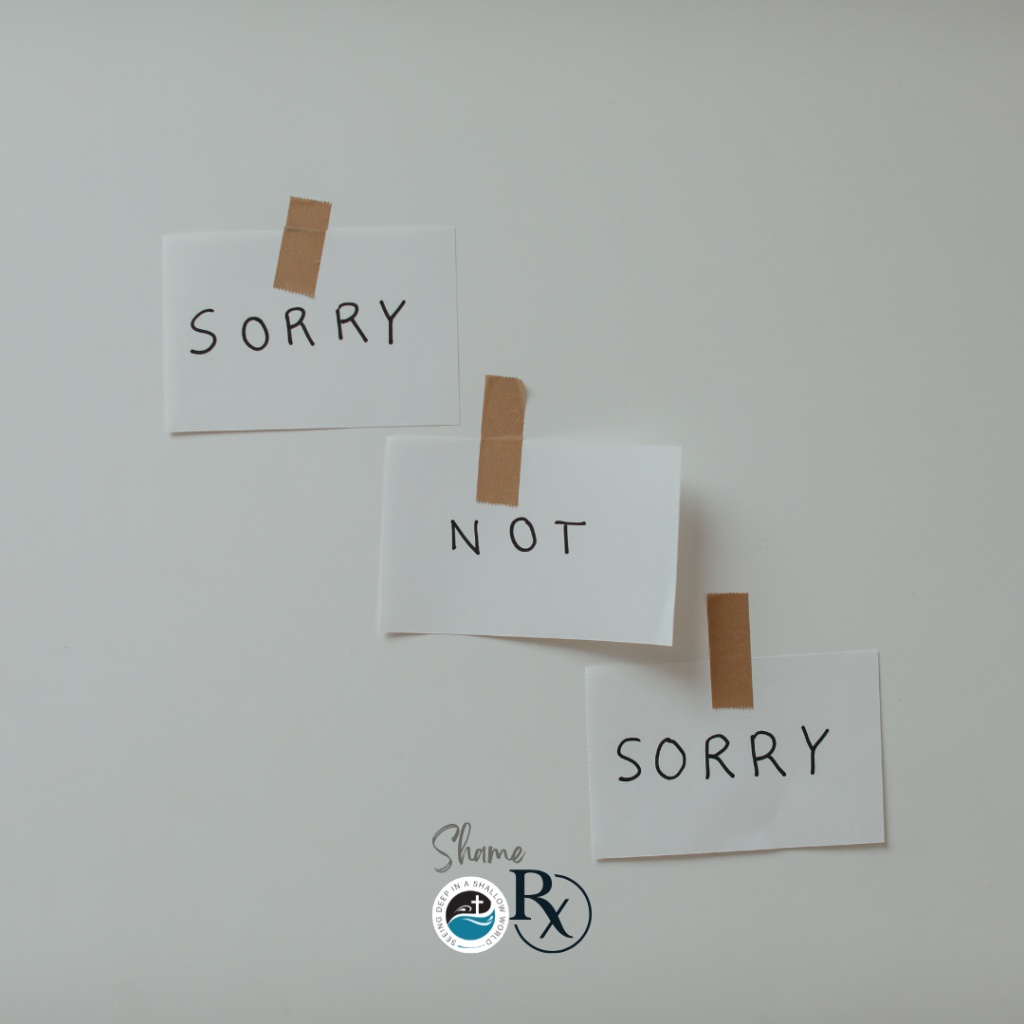
Relationships don’t just impact our emotions—they touch the deepest places of identity, belonging, and worth. So when a relationship sours, shame often slips in quietly, whispering lies about who we are and why things fell apart.
Shame says:
“You failed.”
“You weren’t enough.”
“Something must be wrong with you.”
But shame is a terrible interpreter of relational pain.
Its goal isn’t healing — it’s hiding.
💔 When relationships break, shame tries to break us too.
It takes the raw ache of misunderstanding or conflict and turns it inward:
making the story about our inadequacy instead of the complexity of human hearts.
Yet Scripture is clear:
Our worth is not determined by someone else’s wounds, withdrawal, or rejection.
We belong to God — beloved, chosen, and secure.
Shame Rx:
Shame loses its power when we stop absorbing blame that isn’t ours.
When you find yourself replaying what went wrong — rehearsing every word, every look, every moment — pause and ask:
“Am I carrying emotional weight God never asked me to carry?”
Because here’s the truth:
You are responsible for your heart, not for someone else’s response.
💛 What to Do When Shame Rises After a Broken Relationship
1. Name what is yours — and what is not.
If you sinned, confess and make amends.
If you didn’t, release the internal accusation.
Not all relational breakdowns are moral failures.
Some are simply the reality of living in a fallen world with fallen people — ourselves included.
2. Resist rewriting the story through shame’s lens.
Bitterness tells one story.
Shame tells another.
Neither leads to freedom.
Let gratitude gently rewrite the narrative:
“What was admirable?”
“What was lovely?”
“What did this person add to my life, even if the season is over?”
Gratitude softens the sting without denying the loss.
3. Let God speak louder than your self-criticism.
When shame says,
“You weren’t enough,”
God says,
“You are Mine.”
When shame says,
“You ruined everything,”
God says,
“My grace covers you.”
4. Don’t let offense harden your heart.
Even justified hurt can become a doorway for shame.
But cultivating thick skin and a soft heart keeps your identity rooted in Christ — not in someone else’s reaction.
5. Choose the freedom of forgiveness.
Forgiveness isn’t pretending it didn’t hurt.
It’s refusing to let shame bite twice.
You are not defined by what happened.
You are defined by Whose you are.
The Hope:
Shame doesn’t get the final say when relationships sour.
God does.
And He calls you beloved… even here… even now.
Let His voice be the one that steadies your heart and restores your story.
Reflection Questions:
1. What story is shame trying to tell me about this relationship? Is it accusing me… or inviting me to examine and grow?
2. Am I carrying emotional responsibility that belongs to someone else? Where might I be holding blame God has not assigned to me?
3. Where has offense taken root in my heart?
Check out the Seeing Deep blog this week as we work on gratitude without grumbling ourselves.